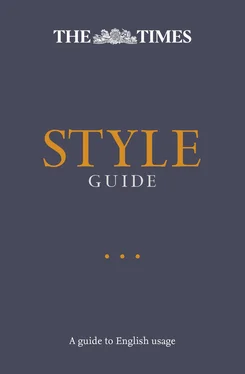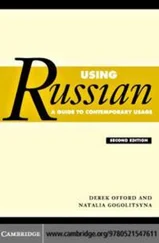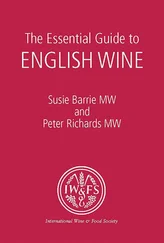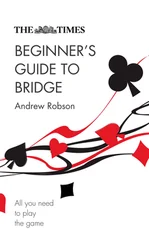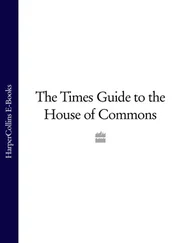The following guidance sets out some general principles. See also under individual alphabetical entries.
Job descriptions, titles and names
Almost all job descriptions should be lower case. This includes all company chairmen, vice-presidents, managing directors, chief executive officers, general secretaries, ambassadors, editors etc.
There are, however, some (not many) job descriptions that are also titles, ie that are commonly (and formally) used in conjunction with the proper name of the person holding the position in question. These take a capital when used as titles in front of the name but lower case at all other times. So, for instance, we would refer to President Trump but to Donald Trump’s election as president of the United States. We would refer to President Putin but to the Russian president’s influence on the world. We would refer to Professor Jones, but to the professor’s latest book.
In British usage political job descriptions are not generally attached to names as titles in this way. We do not refer to Prime Minister May, or to Chancellor of the Exchequer Hammond or to Foreign Secretary Johnson. These should all, therefore, be lower case at all times. Theresa May, the prime minister; Philip Hammond, the chancellor of the exchequer; Boris Johnson, the foreign secretary. Similarly the secretary of state for defence, the permanent secretary, the shadow chancellor, the cabinet secretary, the leader of the opposition, the minister of state for policing, criminal justice and victims at the Home Office. This may seem unsettling at first, but it is clearer and more consistent than any of the other options. The Speaker is a rare exception, as clarity seems to demand a cap (a deputy speaker remains lower case, however, as there is no risk of comparable confusion); be prepared to consider similar exceptions as they arise; do not pursue consistency at the expense of clarity or common sense.
The titles of ecclesiastical dignitaries may be said to describe a position or job, but they also name an individual holder of that position (even when no surname is given), and they may be attached as titles in front of a name (as political or other job titles in British usage are not). As a courtesy, they take a capital letter when used as names (which in practice will generally be at first mention); subsequent references are lower case; in this they are treated in the same way as aristocratic titles (see below) rather than, eg political jobs. This may be slightly anomalous, but it is probably what most Times readers expect, even in a secular age. So, the Archbishop of Canterbury, or Archbishop Welby, but then the archbishop; the Bishop of London, or Bishop Chartres, then the bishop; the Dean of St Paul’s, or Dean Inge, subsequently the dean; the Archdeacon of Barchester, or Archdeacon Grantly, then the archdeacon. Lower case when referring not to the individual but generally to holders of the office: future archbishops of Canterbury, the role of dean of Westminster, the first woman bishop of Gloucester etc.
Royalty etc The Queen, exceptionally, and as a courtesy, remains the Queen (upper case) at subsequent mentions, whenever the individual monarch is intended (likewise in historical stories referring to the reigning monarch of the day). There is no need for other monarchs or for senior members of the royal family to have capitals at all times; so, treat in the same way as senior clergy: the King of Spain, then the king; the Duke of Edinburgh, then the duke; the Prince of Wales, or Prince Charles, then the prince; the Duke of Cambridge, then the duke; Prince Harry, then the prince. The courtesy of a capital at all times is also extended to the Pope, whenever the individual pontiff is intended. When referring to the position of queen or pope rather than the person, use lower case: “the Queen (or Queen Elizabeth II) has had an impressive reign, which any future queen will struggle to match”; “the Pope (or Pope Francis) is the first pope to come from Latin America”.
Aristocrats The Duke of Wherever is thus at first mention; subsequently the duke; never Lord W. Other aristocrats take a capital when named in full: the Marquess of X; Viscount Y; the Earl of Z; at subsequent references all normally become Lord X, Y, Z (although the marquess, the viscount, the earl etc would be acceptable for occasional variety). Lower case when not naming individuals: an earlier marquess of Bath, future earls of Oxford, the seat of the dukes of Devonshire etc.
Similarly with military ranks , General Jackson would usually remain General Jackson at subsequent mentions, but the general might be used if variety seems necessary.
Police ranks are capped when attached to names: Chief Inspector Morse etc; subsequently the chief inspector or Mr Morse; chief constable, like prime minister, is not generally used with a name. We don’t say Chief Constable Jones, it remains lower case: Mr Jones, the chief constable; the chief constable of Merseyside etc.
With few exceptions, such as those indicated, resist using capitals to indicate the dignity or supposed dignity of a position.
Government departments etc The names of specific government departments and other significant national or international bodies or organisations are upper case when the full name is used (the Ministry of Defence, the Department for Education, the European Commission, the Law Society, the Football Association, the Independent Press Standards Organisation) but otherwise (or subsequently) lower case: the ministry, the education department, the commission, the regulator etc. The Home Office, the Foreign Office, the Cabinet Office, the Treasury remain upper case. All committees, etc, are lower case. In local government, generally upper case only for the name of the place: Norwich city council, West Somerset rural district council planning department (if such a thing exists).
Political terms in general Government, parliament, administration and cabinet are always lower case except when used as part of an official title, such as Government House, Houses of Parliament, Her Majesty’s Government or the Cabinet Office. The opposition is likewise lower case; there is some risk of ambiguity, but context will usually make quite clear what is meant. (Her Majesty’s Opposition, like Her Majesty’s Government, would be upper case if for some reason used.) Also lower case for all references to the state (except in naming, eg the US State Department): a state visit, the state opening of parliament, church and state. The word party is upper case where it it integral to the title: thus Labour Party, Conservative Party, Social and Democratic Labour Party (SDLP) and United Kingdom Independence Party (Ukip). Similarly in the case of foreign parties where the equivalent word is integral to the title: Popular Party (Partido Popular of Spain), Workers’ Party, Freedom Party etc.
Terms derived from proper names There are grey areas here and common sense is required.
As a general principle, with terms derived from the names of people (or peoples), the closer the connection with the proper name, the more likely it is to be upper case. Christian values, Thatcherite Tories, Homeric epithets and Marxist academics, for instance, all depend for their significance on the proper noun from which they derive; without knowing something of Christ, Margaret Thatcher, Homer or Karl Marx, we will not understand what is meant. When we talk of spartan conditions, herculean tasks, gargantuan appetites and quixotic acts, however, we are using words which have become common adjectives; they denote familiar attributes, and their meaning may be understood by people who know nothing of Greek history or myth, and who have never read Rabelais or Cervantes.
It will often be difficult to draw such a neat distinction, however. In such cases, rather than waste time worrying over how close the connection may be between a word and the person or place to which it refers, consider what is likely to seem more natural to the reader. This is an area in which our general preference for lower case may have to be qualified. Because we are so used to seeing them capped, the names of people and places (and the proper adjectives derived from them) tend often simply to look wrong when lower case.
Читать дальше
